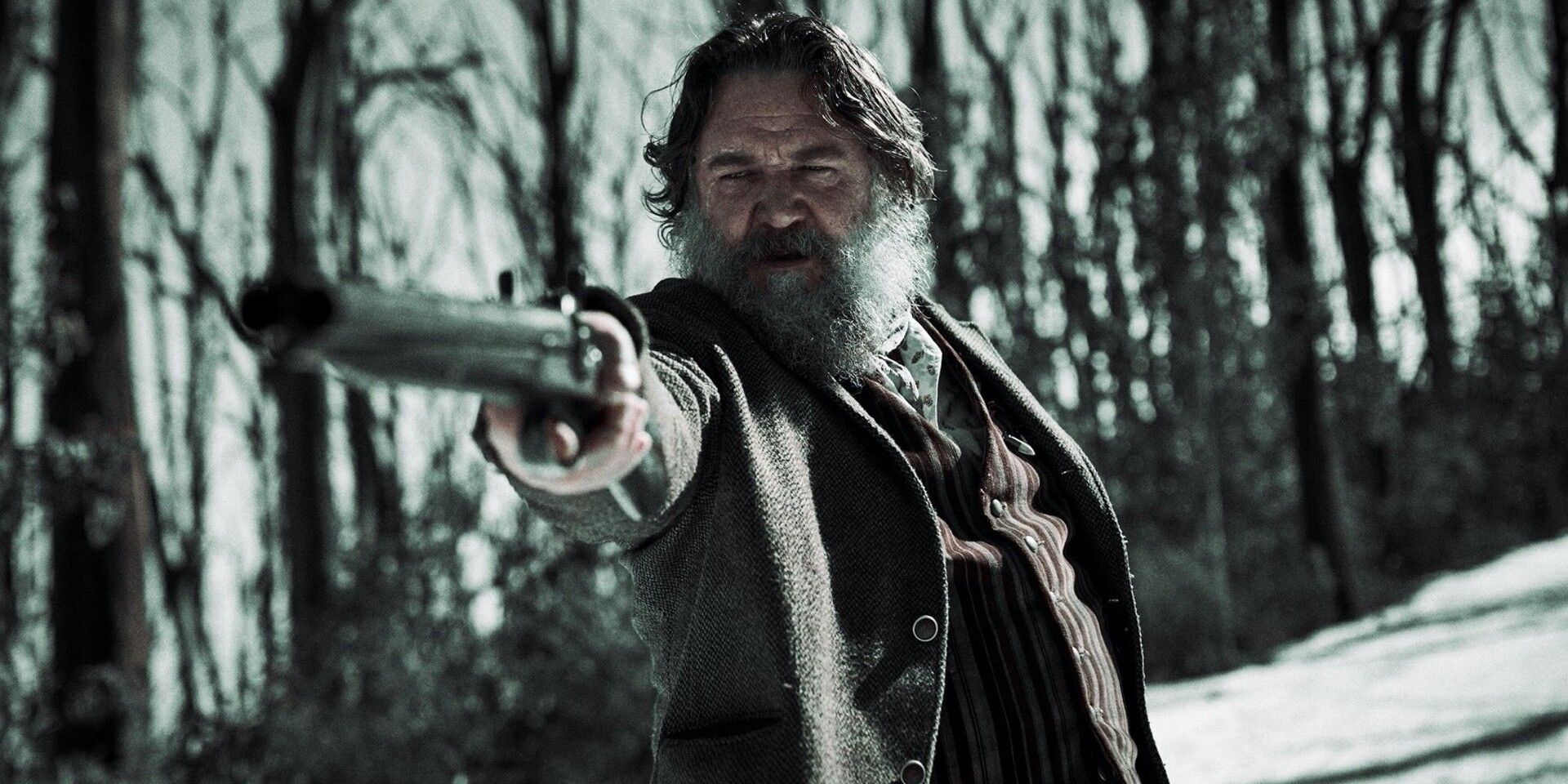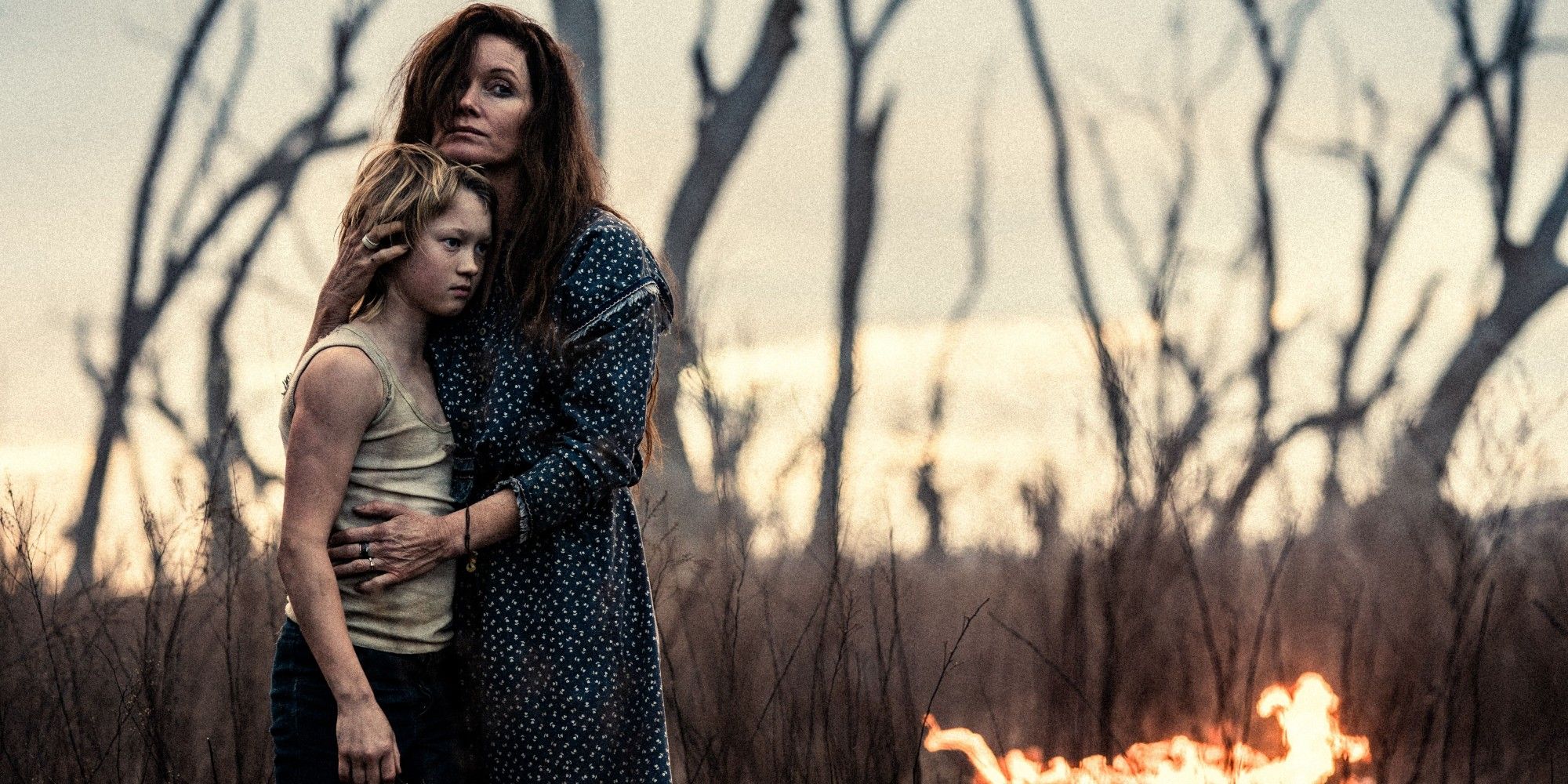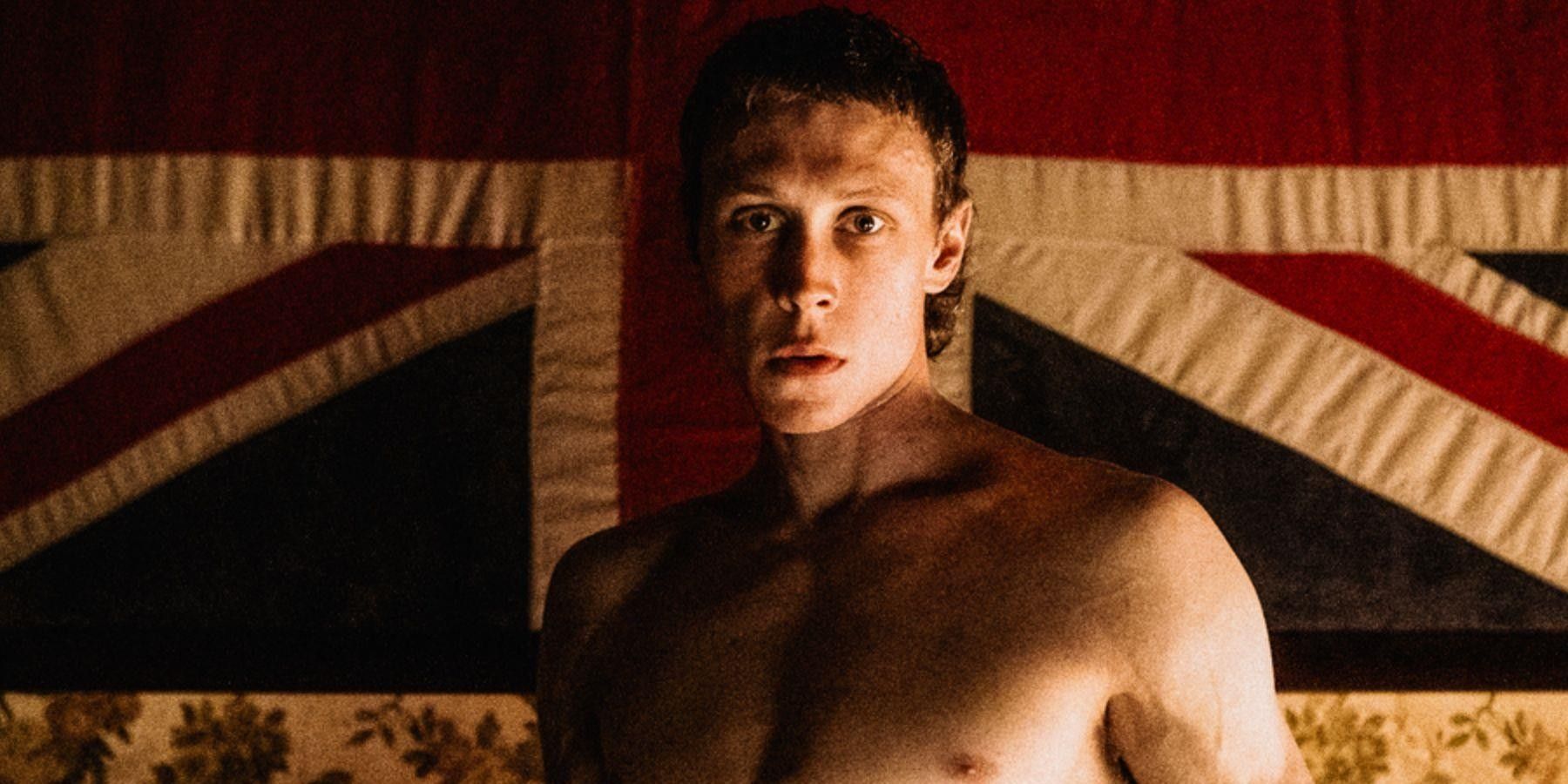True History of the Kelly Gang dives deep into one of the most notorious times in Australia's past, when bushrangers like Ned Kelly (George MacKay) stirred up anarchy in the badlands. But Justin Kurzel’s film, available to stream on April 24, is as interested in deconstructing its legendary antihero as it is in exploring the history of colonial Australia.
The director chatted with Screen Rant about why the story resonated so strongly with him, and just how important it was to see Ned Kelly as a man as well as a myth.
You assembled a fantastic cast for The True History of the Kelly Gang. Did Russell Crowe joining early on help get the ball rolling with the cast?
Justin Kurzel: I think Russell got the ball rolling in terms of production; in terms of getting the finance more than anything else. I was really fortunate in that we really knew who we wanted to cast for the other roles, so they came on pretty quickly. Because there was such a such a great ensemble role, so I was really fortunate in that we were able to get Charlie [Hunnam] and Nick [Hoult] and Essie [Davis].
And then George MacKay was part of a really, really long search; I've seen some of the best 20 year old actors in the world for the role. I was really privileged that the material seemed to capture people's imaginations, and they really wanted to work on it.
But it's funny, it was still really tricky to get the money for it, because of the sort of piece of was. Despite the ensemble that I had, it was still a real challenge. But Russell was always there, and even when the money fell over, he stayed with it. So, he was he was a huge part of it getting out.
What do you think it was about this project that made them all jump on?
Justin Kurzel: I think the quality of the scripts, I think Shaun Grant has written a pretty amazing script, and it was just really unique and different. Each of the characters had a really solid type, from Harry Power being a sort of musical tragic figure on the downturn, to Charlie and Nick playing two constables that were quite appalling - but you felt an idea as to why that would be. There was a sort of empathy there, in some way.
The writing was different, and the characters were probably quite different from what they'd played before, and coming on and doing a smaller role means that they didn't have to have all this time invested in it. I think it was that and, primarily the script. I think after they read the script, I was really lucky that they kind of responded to it straight away.
The movie is set about 150 years ago. What interested you about that time period, and how did you become familiar with the novel?
Justin Kurzel: I read the story just after The Snowtown Murders premiere at the London Film Festival. Hal Vogel, the producer, came up and showed me the story. I didn't know much about it, actually. I knew it won the Booker Prize, that was really regarded. We started working on it; it took a long time and wasn't really happening. Shaun Grant came on, who'd written Snowtown.
And it really wasn't until six years later, after I'd finished Macbeth and Assassin's Creed and was really missing home that I picked it up again, and it just spoke to me in a way that it'd never spoke to me before. I was really starting to question my identity as Australia;, why we make these characters out to be the sort of myths and legends that we do. And it just felt like a really honest look inside our psyche that I just didn't see before. It just became a bit of an obsession, and I thought, "I just have to make this. I just have to make it." Fortunately, Shaun wrote a great script and made it even harder to not do it. And that was it, yeah.
Rebellion is a big undercurrent in the film, and the threat of that continues to build the tension. Why is that notion important to the film, and why is now a good time for these themes to come through?
Justin Kurzel: You know, I think we're living in a time where people are really scared as what they say and what they do. You can feel people being watched a lot more, and there's something about being liberated to speak your mind and to believe in something that I think is always really appealing, and probably more so than in any other recent times.
The idea of rebellion, the idea of involving yourself and turning yourself into something that takes charge of your own sort of destiny, I think that's always been a really popular kind of idea. I was really that The Joker did what it did, you know? That film, whether you like it or not, has a particular bent to it and just hit a zeitgeist with younger people There's a kind of rebellion in that, that somehow really connected. It's fascinating how those films about anarchy and about taking hold of your own destiny and fate really appeal to people.
This really is a historical Western, but it feels modern in its character and actions. What was your approach to that balancing act?
Justin Kurzel: Well, I didn't want it to feel like a museum piece. I just didn't want it to feel like we were shackled, even in the making of it, by the period kind of governing everything. I'm always really interested, when I do kind of period stuff, that it feels familiar and that there's an emotional world to it, and there's a kind of timelessness to it. That you don't feel as though it's out of reach, and that you recognize things in it.
The True History was about finding that lovely sweet spot, where there were certain aspects of the gang, the silhouette of the gang and stuff that I'd see photos of him in 1870s Australia, and suddenly look at the 1970s Australian punk bands, and the silhouette felt exactly the same. I was like, "Wow, the attitude of these two photos look really, really similar." So, we were definitely bending to other periods of time in Australia, that sort of felt like it had a spirit to what I would have imagined 1870s in Australia would be and have.
So, it's a real balance. I'm never interested in just kind of going, "Oh, we're going to fit this thing now in the future." It's always about trying to honor as much as possible the spirit of the time and the period that it's set in - but at the same time, it's gonna bring an audience closer to it.
Now, Peter Carey's book is framed as an autobiography written by Ned. How did you frame your story to mimic that perspective, if at all?
Justin Kurzel: Well, it was essential. I think the whole idea of the book and why we're into it was the idea of how people are kind of made to be myths and legends beyond their control. What's really profound in the book was Ned writing to his daughter, kind of reclaiming his history after it being stolen from him, making sure that she knew who the true Ned was. And I found that fascinating, how historical characters by and by have their history stolen from them; they've reinterpreted and their journey can be completely shifted and changed.
With Ned Kelly in Australia, it's like a carnival. There's Ned Kelly beers, Ned Kelly pies, he's used at the opening ceremony for the Sydney Olympics. He's kind of become this sideshow. The idea of seeing Ned Kelly sit down in first person and talk to his daughter, in a kind of premonition about the fact that his history is going to be stolen and he's almost going to become this and he wants her to know the truth... That to me was really moving, and I think in our time, really honest.
Can you talk to me about how a few things go wrong for Ned and landslide for him?
Justin Kurzel: To me it was always about whether you're kind of a prisoner to your own fate and destiny. Whether him ending up the way he did at the end of the film was something that he was never going to be able to change in the course of history. So, I wanted an actor that - and set him up in a way - you felt as though he was full of possibilities. He could have been anything, if he wanted to; that he had ambition, that he was sophisticated, that he saw things in different way. That he could change the course of history if he want to.
But the idea was that he was always going to be a Kelly; that this matriarchal figure of Ellen Kelly, his mother, had something over him in regards to her greatest fear of him leaving her. There was a way in which she kind of corrupted and spoiled some of his choices or some of the avenues he could have gone down. That became really fascinating; that became the real tension in the film of a character desperately trying to outrun his own destiny and fate, and in the end not being able to and sort of becoming it. Liberating himself by becoming thing that was chasing him. That was a very, very strong motor throughout the film.
This is also a story about Bushrangers, outlaws who pass on their traits to the next generation. Can you explain the different ways that it manifests through character relationships?
Justin Kurzel: It's introduced through Harry Power, he is the most notorious bushranger in Australia before Ned Kelly. And he comes into the story when Ned Kelly's 11 or 12 years old, to be his mentor. He's been sold by his mother to become a bushranger; to be taught to become a bushranger. What you end up finding is that Harry Power needs Ned more than Ned needs Harry Power. In the end, Harry Power's life as a bushranger is actually quite tragic and lonely, and not what you think and expect - and there's a kind of sadness to that.
That was a really interesting relationship, in terms of what you think is going to be set up as the predictable mentor taking Ned to the next stage, kind of actually almost becomes an almost cautionary tale about where Ned may be heading.
You also have experience with video game films, like Assassin's Creed. Do you think that project may have more success in longform storytelling, such as a streaming series?
Justin Kurzel: Yeah, I think it's always a challenge, making a kind of narrative out of a video game. Maybe it was incredibly ambitious in trying to kind of form the two parts of the game, which is the idea of a modern character going back in time through the animus, or going back in memory, to a particular period. And that's interesting in the game, because you spend most of your time in that period. So, we were dealing with a really complicated concept and idea that was really challenging and really difficult, in terms of coming up with a really simple and solid narrative that would kind of lead that idea through.
My question, in hindsight looking back, is whether audiences really wanted to actually just stay within the period like the game, and really experience the time and place in history and what that was, as opposed to flipping back and forth. But the challenge is always the storytelling of Assassin's Creed, which is an incredibly complicated idea that's so brilliantly realized in the form of game. How you actually bring that to a straight narrative was always the challenge.
True History of the Kelly Gang is on Digital and On-demand April 24, 2020.



